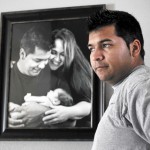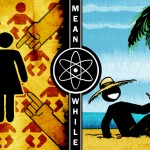Each week in Watching Politics From the Pew, Benjamin Bartlett offers a thoughtful Christian perspective on the latest political happenings in the news.
In the movie City Hall, Al Pacino plays the mayor we all wish we had. He is a fabulous communicator, a brilliant strategist, and a sly deal maker. He makes the city move, and he moves hearts besides. Those who come into contact with him develop a sense of trust and loyalty for his qualities and intentions.
In his own eyes, the mayor is a mensch, a Yiddish term generally meaning a person of nobility, integrity, and virtue. At several points, he makes clear to his staff that he is doing politically unwise things simply because it is right. But as you might imagine, it all comes unraveled when it is discovered that he does backroom deals with the Mafia to further his own political career.
The character portrayed by Al Pacino in that movie strikes to the heart of a fundamental problem in electoral politics. When it comes to executive leaders, we all desire a King Arthur. But too often the leaders who look most like Arthur are actually Machiavelli at heart.
I’ll avoid for now the problem of limited choices in American elections, though believe me, it is a significant problem. Instead I want to ask what we are doing about developing and preparing the right kinds of leaders in our churches and at home.
My son is three now, and already he has a startlingly creative mind and problem solving ability. It will not be long before he goes to school and starts facing increasingly complex moral problems. Those issues will only challenge him more and more as he grows through childhood, adolescence, and young adulthood. The way I educate him now could well have a powerful influence on his handling of the difficult moral ambiguities of adulthood, especially if he is given leadership responsibilities for his family, his church, his business, or his political entity.
I am struck by the fact that right now I am one of two primary moral influences in his life. And yet I focus large amounts of time trying to influence the political outlook of people for whom I am at the bottom of a long list of influences. I don’t think it’s wrong to have that sort of role in the world. But I also hope to instill my son with a real sense of God-centered menschkeit, so that future generations will look back and be thankful for the forces that drove my son to be an Arthur rather than a Machiavelli. Indeed, it may be the greatest contribution my life ever makes to proclaiming the City of God in the institutions of the City of Man.











